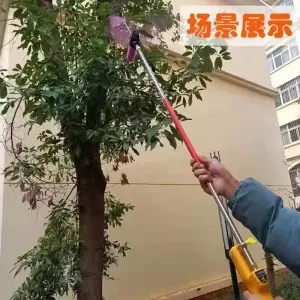Dec . 29, 2024 09:57 Back to list
Enhancing Orchard Growth with Male Kiwi Pollen Services for Optimal Fruit Production
The Importance of Male Kiwi Pollen Service in Agriculture
In the world of agriculture, the significance of pollination cannot be overstated. It plays a crucial role in the reproductive processes of flowering plants, ultimately leading to fruit production. Among the various crops cultivated around the globe, the kiwi fruit stands out for its unique flavor and nutritional value. To ensure successful kiwi cultivation, understanding the role of male kiwi pollen service is essential.
Kiwi, or Actinidia deliciosa, is a vine that produces delicious, nutrient-rich fruits. However, unlike many other fruit-bearing plants, kiwi plants are dioecious, meaning that there are male and female plants. For the female plants to produce fruit, pollen from male plants is necessary. This is where the concept of male kiwi pollen service comes into play. Farmers and growers have to carefully manage the ratio of male to female plants to optimize pollination opportunities and, subsequently, fruit yield.
Typically, a kiwi orchard requires about one male plant for every six to eight female plants. The male plants produce an abundance of pollen during their flowering season, which is essential for fertilizing the flowers of the females. The timing of bloom for both male and female plants must be aligned for effective pollination to occur. As such, having male kiwi pollen service not only includes planting male kiwi varieties but also requires careful planning to ensure that the male plants flower simultaneously with the females.
The benefits of male kiwi pollen service extend beyond just increased fruit yield. Pollen collected from male kiwi plants is known to be highly viable and can improve the genetic diversity of the kiwi crops. This diversity is vital for enhancing the resilience of plants against pests and diseases. Additionally, a well-pollinated kiwi will have better quality fruit in terms of size, sweetness, and overall market value. Thus, ensuring the availability of male pollen helps growers achieve a more successful harvest.
male kiwi pollen service

Moreover, incorporating male kiwi pollen service is environmentally friendly. By managing male and female plants appropriately, farmers can reduce the need for artificial pollination, which can be both labor-intensive and costly. Utilizing the natural pollination process not only saves resources but also supports local ecosystems by promoting the presence of pollinators such as bees and other insects that thrive in biodiverse environments.
In recent years, research and technological advancements have further improved kiwi cultivation strategies. Modern agricultural practices now include the use of controlled pollination methods and land management systems that can enhance the effectiveness of male kiwi pollen service. For instance, growers can monitor weather conditions and pollen viability to determine the optimal time for deployment, ensuring that male pollen is available when it is most needed.
To promote healthy and productive kiwi orchards, farmers must commit to ongoing education and collaboration with agricultural experts. Workshops, seminars, and agricultural extension services play an instrumental role in disseminating knowledge about best practices in male kiwi pollen management. By investing in education, growers can adopt innovative techniques that lead to sustainable farming, ensuring a brighter future for kiwi cultivation.
In conclusion, the role of male kiwi pollen service is fundamental in the successful production of kiwi fruit. It encompasses careful planning, management, and an understanding of agricultural practices. By prioritizing effective pollination strategies, kiwi growers can not only enhance their yield and fruit quality but also contribute to the sustainability of agricultural ecosystems. In a world increasingly focused on sustainable practices, the importance of male kiwi pollen service stands as a beacon of agricultural innovation.
-
High-Quality Peach Tree Pollen for Pure Pollination Success
NewsAug.09,2025
-
Fruit Paper Bags: Protect from Plant Pollen & Pests
NewsAug.08,2025
-
Plant Pollen Guide: Types, Uses & Artificial Pollination
NewsAug.07,2025
-
High-Viability Male Kiwipollen for Sale | Boost Yield
NewsAug.06,2025
-
Eco Fruit Paper Bags for Peak Freshness | Durability Focused
NewsJul.31,2025
-
Pollen Peach Tree for Pure Pollination and High-Quality Peach Pollen
NewsJul.30,2025